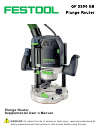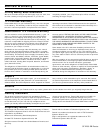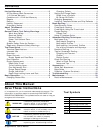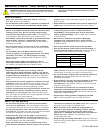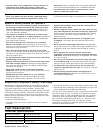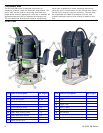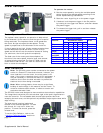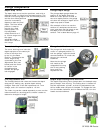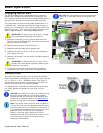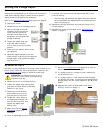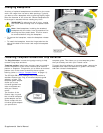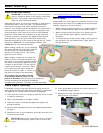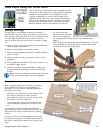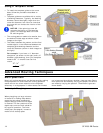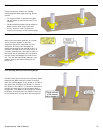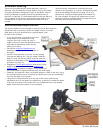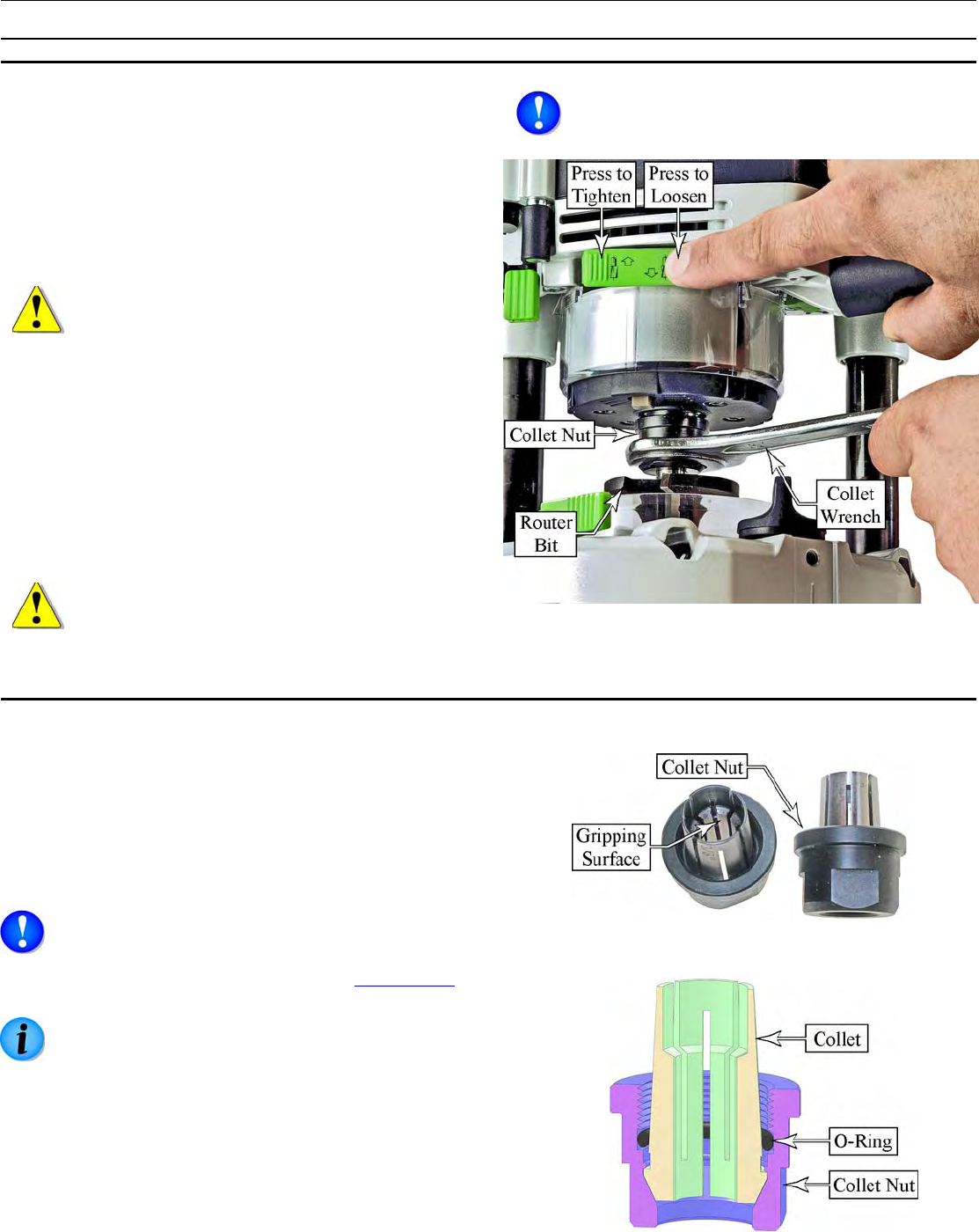
Basic Operation
Changing Router Bits
The OF 2200 EB has the unique feature of a ratcheting
spindle lock. Because the spindle lock is ratcheted, you
don't need to remove the wrench to make multiple turns of
the collet nut; simply move the wrench back and forth.
The router also has an extremely deep spindle bore (3 ½
inches/89 mm). Very few router bits are long enough to
bottom out in the spindle, which would prevent them from
tightening properly. The router bit gripping surface of the
collet is approximately 1 inch deep (shown below).
WARNING! To reduce the risk of injury, unplug
the router before changing the router bit.
1. Insert the router bit into the collet at least one inch.
This will vary with different bits, but most of the shank
should be within the collet.
2. Place the collet wrench on the collet nut.
3. Press the left-hand side of the spindle lock.
4. Tighten the collet nut firmly, but it is not necessary to
over-tighten the nut.
5. Remove the wrench from the collet nut before starting
the router.
WARNING! To reduce the risk of injury, never
operate the router without properly securing the
router bit in the collet.
6. To remove a router bit, follow the same procedure
except press the right-hand side of the spindle lock.
NOTICE: Do not tighten the collet nut without a
router bit in the collet. Doing so will distort the
collet.
Changing Collets
The router can use a variety of router bits with different
shank diameters by changing the collet. The router can use
1/4-in., 3/8-in., 1/2-in., and 8mm collets. The collet is
integral with the collet nut, so unscrewing the collet nut
will pull the collet out of the tapered spindle.
To change collets, unscrew the existing collet all the way
out of the spindle and screw the new collet into the
spindle.
NOTICE: Avoid leaving a router bit installed in the
collet for long periods of time (during storage),
because the bit and collet can stick together and
be difficult to separate. Refer to the
Maintenance
section on page 23 for collet maintenance.
Note: The collet is held into the collet nut with an
O-ring. The collet can be separated from the collet
nut only when there is no router bit in the collet. If
you inadvertently separate the collet from the nut,
press the collet into the nut until it snaps in
position, and then gently pack the O-ring in
between the collet and the nut with a small, blunt
tool. Avoid removing the collet from the nut,
except for maintenance.
Supplemental User’s Manual 9



